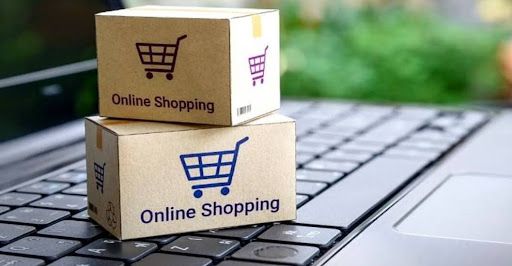Online shopping has transformed how we acquire goods, providing unparalleled convenience and access to various products. However, the digital marketplace has risks, especially in Nigeria. The country’s online shoppers often encounter fraud, scams, and subpar products.
This article will explore the essential strategies to ensure a safe and secure online shopping experience in Nigeria.
Online Shopping in Nigeria
Online shopping is a popular alternative to traditional brick-and-mortar stores as the world becomes increasingly connected through technology. It offers the convenience of browsing and purchasing products from the comfort of your home, regardless of age, gender, or location. This convenience is especially valuable in Nigeria, a nation with bustling cities and often daunting traffic conditions.
Why Should You Consider Shopping Online?
Online shopping in Nigeria provides several compelling advantages:
A. Saves Time
Commutes in Nigeria’s cities can be arduous, with hours spent in traffic to reach a mall. Online shopping eliminates this time sink, allowing you to make purchases with a few clicks and have products delivered to your doorstep. This approach is more efficient and frees up time for more important activities.
B. Saves Stress
Stress is a constant companion for many Nigerians due to heavy traffic and other daily challenges. Online shopping circumvents this stress by enabling you to avoid unnecessary trips to physical stores. Instead, products are delivered directly to you, minimizing stress and hassle.
C. All-in-One Store
Online shopping platforms offer the convenience of finding various products in one place. Whether you’re shopping for clothing, electronics, or household items, you can access everything you need without navigating multiple physical stores.
How to Shop Online Safely in Nigeria
While the benefits of online shopping are clear, safety concerns must not be overlooked. To help you shop confidently and securely, here are essential tips:
1. Check the Online Store URL
Before making a purchase, scrutinize the website’s URL. Legitimate online stores have clear and straightforward URLs, often ending in .com, .net, or .org. Suspicious URLs with odd combinations of words or characters may indicate a scam. Look for a locked padlock sign next to the URL, indicating a secure connection.
2. Check out Social Media Proof
When considering an online store, seek social proof from friends or acquaintances with experience with the platform. If a store is reputable, you’re likely to find positive feedback online. Engage with a community of regular online shoppers who can provide insights and recommendations.
3. Demand for ‘Pay on Delivery’ Service
Opt for the “pay on delivery” option whenever possible. Reputable online stores in Nigeria, such as Jumia and Konga, offer this choice. It ensures that you only pay when you receive your ordered items, reducing the risk of fraud. If an online store does not offer this option, consider alternative options or visit physical retail shops.
4. Get an Online Shopping Card
Protect your finances by using a dedicated online shopping debit card. By segregating your shopping funds from your main account, you mitigate the risk of losing substantial amounts in case of a breach. Even if scammers access the card’s details, they can only access the funds allocated for online purchases.
5. Avoid Sharing your Bank Info
Your BVN (Bank Verification Number) is sensitive information that should be closely guarded. Share it only with trusted entities, ideally limiting access to your spouse. Avoid online stores requesting your BVN or other overly sensitive banking details.
6. Never Make Your Shopping Cart Full
While urgency might tempt you to complete all your online shopping immediately, consider pacing your purchases. Not all items may arrive on the same day, and this strategy helps you make more informed decisions and avoid potential disappointments.
Conclusion
Online shopping in Nigeria is undoubtedly convenient but comes with certain risks. By following these strategies, you can shop safely and confidently, ensuring your online purchases are secure and fulfilling. Remember, online platforms should be helpful, but staying cautious is key to a successful online shopping experience.
FAQs about Safe Online Shopping in Nigeria
Q1: How can I verify if an online store is trustworthy?
A: Checking the URL, seeking social media proof, and using “pay on delivery” options are effective ways to gauge an online store’s credibility.
Q2: What steps can I take to protect my banking information?
A: Use a dedicated online shopping debit card, avoid sharing sensitive banking details, and opt for secure payment methods.
Q3: Can I trust online stores that request my BVN?
A: No, legitimate online stores should not ask for your BVN. Avoid sharing this sensitive information unless dealing with a trusted financial institution.
Q4: What should I do if I receive a wrong or substandard product?
A: Prioritize online stores that offer a hassle-free return or exchange policy. Maintain communication with the store’s customer service for swift resolution.
Q5: Is shopping on social media safe?
A: While some social media retailers are reliable, exercise caution. Ensure the goods are delivered and match your expectations before making payment.
